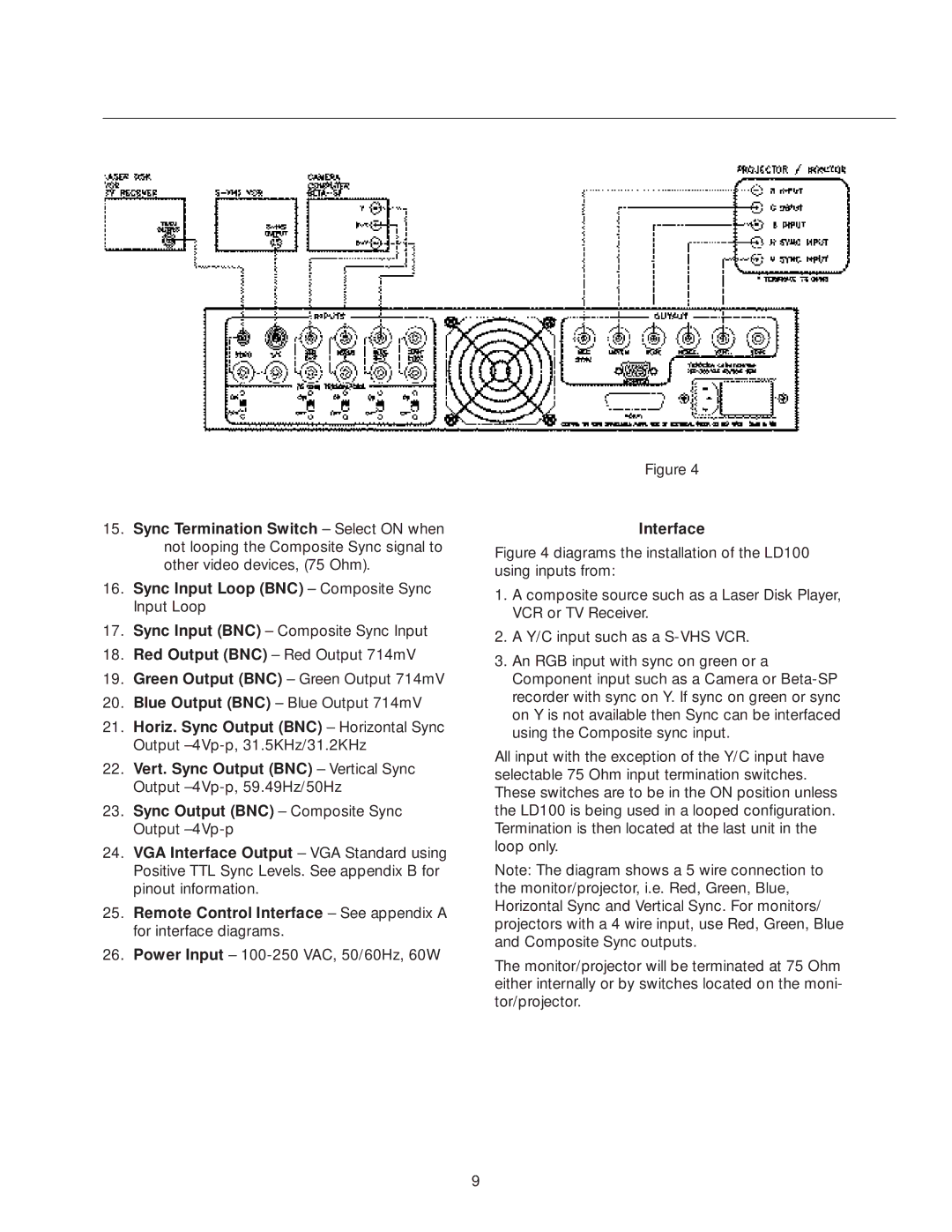
15.Sync Termination Switch – Select ON when
15.not looping the Composite Sync signal to other video devices, (75 Ohm).
16.Sync Input Loop (BNC) – Composite Sync Input Loop
17.Sync Input (BNC) – Composite Sync Input
18.Red Output (BNC) – Red Output 714mV
19.Green Output (BNC) – Green Output 714mV
20.Blue Output (BNC) – Blue Output 714mV
21.Horiz. Sync Output (BNC) – Horizontal Sync Output
22.Vert. Sync Output (BNC) – Vertical Sync Output
23.Sync Output (BNC) – Composite Sync Output
24.VGA Interface Output – VGA Standard using Positive TTL Sync Levels. See appendix B for pinout information.
25.Remote Control Interface – See appendix A for interface diagrams.
26.Power Input –
Figure 4
Interface
Figure 4 diagrams the installation of the LD100 using inputs from:
1.A composite source such as a Laser Disk Player, VCR or TV Receiver.
2.A Y/C input such as a S-VHS VCR.
3.An RGB input with sync on green or a Component input such as a Camera or Beta-SP recorder with sync on Y. If sync on green or sync on Y is not available then Sync can be interfaced using the Composite sync input.
All input with the exception of the Y/C input have selectable 75 Ohm input termination switches. These switches are to be in the ON position unless the LD100 is being used in a looped configuration. Termination is then located at the last unit in the loop only.
Note: The diagram shows a 5 wire connection to the monitor/projector, i.e. Red, Green, Blue, Horizontal Sync and Vertical Sync. For monitors/ projectors with a 4 wire input, use Red, Green, Blue and Composite Sync outputs.
The monitor/projector will be terminated at 75 Ohm either internally or by switches located on the moni- tor/projector.
9
